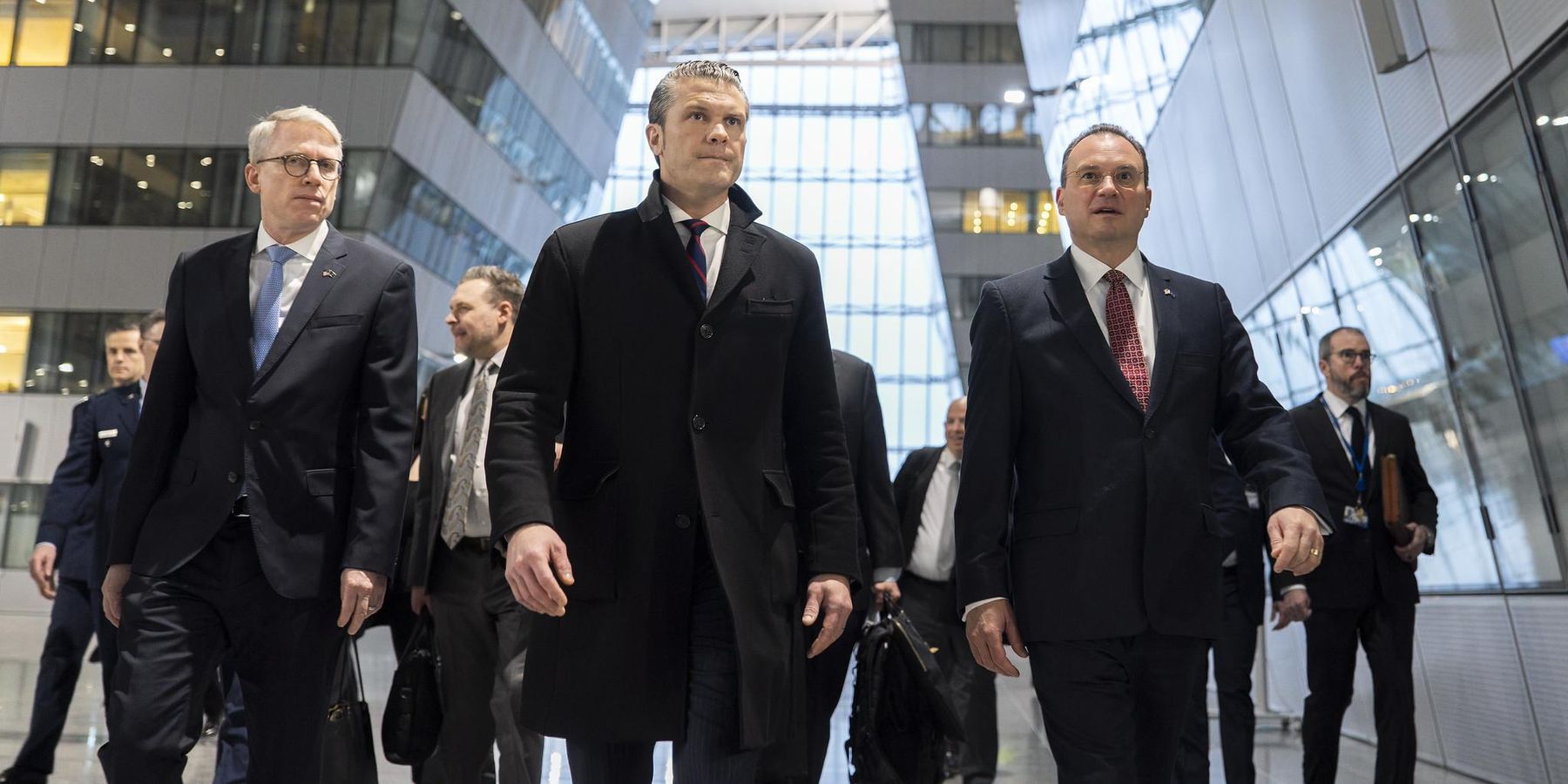Secretary of Defense Pete Hegseth will gather defense industry leaders in Washington on Friday to announce a significant organizational change that will in part help streamline U.S. weapons sales to other countries.
To do this, Hegseth will reportedly move the Defense Security Cooperation Agency, which administers foreign military sales, from the Pentagon’s policy office to the acquisition office.
The overarching idea behind Hegseth's anticipated plans is to cut bureaucratic red tape and increase the speed with which technology gets to the battlefield, according to reporters who have seen the six-page memo. But read the fine lines: it is also to force the Pentagon’s acquisition officials, who are supposed to focus their attention on ensuring the United States military has the hardware necessary to be effective, to also “give greater weight to what allies want to buy and make American offerings more competitive,” according to reporting by POLITICO.
The effect would be to further blur the already fuzzy public/private line between the government and the defense industry because it would effectively make Pentagon officials design partners with the defense contractors as they try to make their weapons more appealing on the international market.
Without this reported organizational change, the American defense industry already does brisk business around the world. Pentagon officials tracked a foreign military sales portfolio of more than $845 billion in 2024, making the United States the largest arms exporter in the world.
Weapons contractors generate a great deal of revenue selling their products overseas which is good for their bottom line. The business model by which they operate is unique because the capital used to develop the products they market was not their own. Most American weapons are developed under cost-plus government contracts meaning the companies are reimbursed for the research and development costs and receive an additional fee in profit.
This arrangement makes American citizens the venture capitalists in a business investment. Taxpayers provide the seed money to move a product from the drawing board to the market. But unlike traditional venture capitalists who expect a significant return on their investment, the American people rarely see a dime in return.
The American people should at least benefit financially from the arrangement. If the government partners with the defense contractors already by acting as sales representatives to overseas markets, the government — and the American people by extension — should be compensated appropriately. At the very least, foreign military sale profits should offset the prices paid by American taxpayers for the same weapons. But that happens only by exception.
The Arms Export Control Act passed by Congress in 1976 does require foreign military customers to reimburse the U.S. government for the research and development costs for the American-made weapons they purchase. But the act includes a provision that allows foreign governments to request a waiver for these payments. U.S. defense industry leaders have argued that the reimbursement fees raise the price of weapons sold overseas, which makes their products less attractive on the market and potentially impacting sales, and their company’s bottom lines.
The Government Accountability Office conducted an audit in 2018 that found the Defense Security Cooperation Agency approved Arms Export Control Act waivers at a rate of 99% during the previous 6 years.
The point can’t be made often enough that the products the defense contractors are selling overseas generally weren’t developed with their own money. Taxpayers covered those costs and the contractors then profit while actively working to prevent foreign customers from reimbursing the American people, thus denying them a return on their investment.
The arrangement is good for the defense industry, but a terrible deal for Americans.
Making the government acquisition officials adjunct defense industry staffers should not be a priority for the nation’s policymakers. The American people trust Pentagon staffers to look after the best interests of American troops, not the bottom lines of the defense contractors.
Rather than spending time considering the international arms market, American acquisition officials should focus their efforts on developing effective tools for the U.S. military that can be delivered on time and within budget — something that Hegseth's plans purportedly addresses. Simply avoiding acquisition failures that have been so characteristic of the past 25 years would do much more to make American arms more appealing on the international market than any organizational change ever would anyway.
















